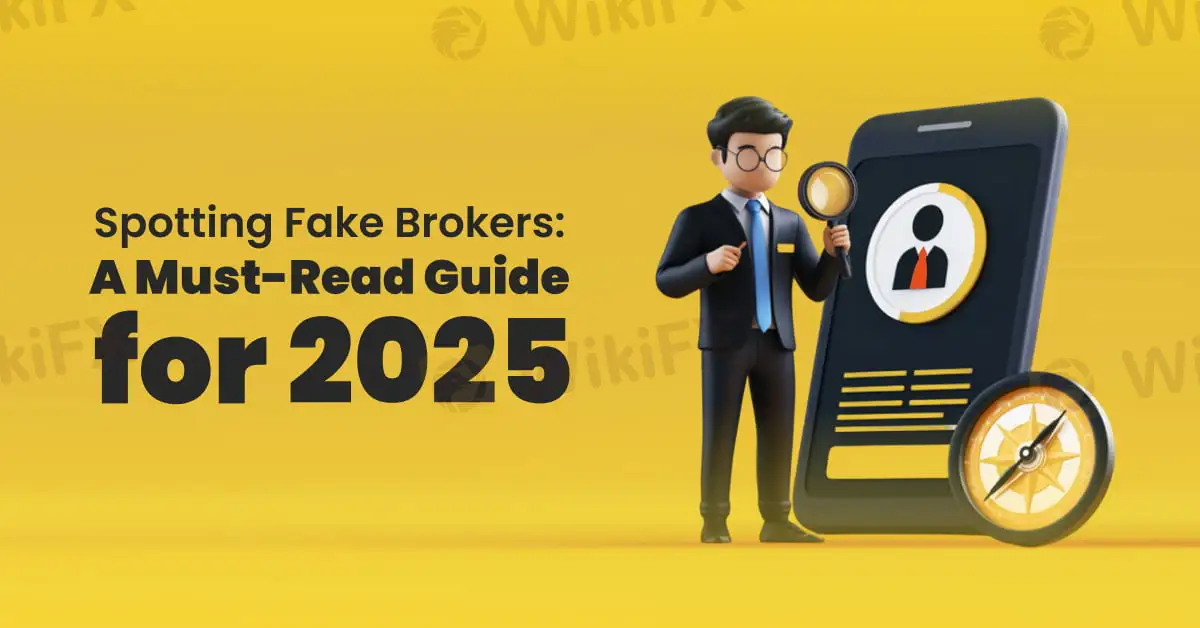Spotting Fake Brokers: A Must-Read Guide for 2025
Abstract:The online trading industry is full of opportunities, but it is also plagued by scams. Every year, thousands of traders fall victim to fraudulent brokers. These scams often lead to significant financial losses. In 2025, understanding how to identify and avoid broker scams has never been more important.

The online trading industry is full of opportunities, but it is also plagued by scams. Every year, thousands of traders fall victim to fraudulent brokers. These scams often lead to significant financial losses. In 2025, understanding how to identify and avoid broker scams has never been more important.
One of the most common scams is fake regulatory claims. Fraudulent brokers often pretend to be licensed by reputable financial authorities. They display forged certificates or false registration numbers to gain trust. Traders should always verify these claims through official regulatory websites.
Another frequent scam involves unrealistic promises of guaranteed profits. Scammers use advertisements or testimonials to lure traders with promises of high returns. Once traders deposit their money, the scammers vanish or refuse withdrawals. Always be cautious of brokers offering profits that sound too good to be true.

High-pressure sales tactics are another warning sign. Fraudulent brokers often use aggressive methods to push traders into making quick deposits. They promise exclusive deals or bonuses that require immediate action. Legitimate brokers allow traders the time to make informed decisions.
Withholding withdrawals is a tactic that scammers commonly use. After traders deposit funds, fraudulent brokers delay or deny withdrawal requests. They may create unnecessary obstacles or ask for additional fees. Traders should always check reviews and policies before depositing funds.
For anyone navigating the trading industry, due diligence is essential. This is where WikiFX becomes an invaluable tool. WikiFX is a trusted broker regulatory query platform that provides detailed information about brokers worldwide. It allows traders to verify licenses, read reviews, and assess the credibility of brokers.

Using WikiFX is simple. The platform is free and available as a mobile application on both Google Play and the App Store. Traders can search for brokers by name and instantly access key details such as regulatory status, user ratings, and complaint records. This makes conducting due diligence quick and efficient. WikiFX also includes features to report scams and file complaints against brokers. This helps to hold fraudulent brokers accountable and protect other traders. By relying on WikiFX, traders can make informed decisions and reduce the risk of falling victim to scams.

Read more

Account Deleted, Funds Gone: A New Broker Tactic to Beware Of?
The main trading dashboard account of a trader for LQH Markets was completely deleted by a broker. The trader is not being offered any access to their funds or profits. This incident shows the risks of trading markets and brokers and the importance of protecting your funds without relying on any broker.

CySEC reaches €20k settlement with ZFN EUROPE
According to report, the Cyprus Securities and Exchange Commission (CySEC) announced today that it has entered into a settlement agreement with ZFN EUROPE Ltd for the amount of €20,000. This settlement resolves a regulatory inquiry into ZFN Europe’s compliance with Cyprus’s Investment Services and Activities and Regulated Markets Law of 2017, as amended.

PrimeXBT Expands Trading Options with Stock CFDs on MT5
PrimeXBT launches stock CFDs on MetaTrader 5, offering shares of major U.S. companies with crypto or USD margin for enhanced multi-asset trading.

Broker Comparsion: FXTM vs AvaTrade
FXTM and AvaTrade are two well-established online brokers offering forex and CFD trading across global markets. Both enjoy strong reputations and high ratings on WikiFX—FXTM holds an AAA overall rating, while AvaTrade scores 9.49/10, indicating they’re regarded as reliable choices by the community. However, since brokers have great reputation in the industry, how do we know which one is more suitable for individuals to invest in? Today's article is about the comparison between FXTM and AvaTrade.
WikiFX Broker
Latest News
Love, Investment & Lies: Online Date Turned into a RM103,000 Scam
Broker’s Promise Turns to Loss – Funds Disappear, No Compensation!
Broker Took 10% of User's Profits – New Way to Swindle You? Beware!
Pi Network: Scam Allegations Spark Heated Debate
Broker Comparsion: FXTM vs AvaTrade
Account Deleted, Funds Gone: A New Broker Tactic to Beware Of?
StoneX Subsidiary, Gain Global Markets Bermuda, Penalized for Trading Misconduct
El Salvador and U.S. Launch Cross-Border Crypto Regulatory Sandbox
The Instagram Promise That Stole RM33,000
Coinbase Launches Bitcoin Yield Fund for Institutional Investors
Rate Calc
